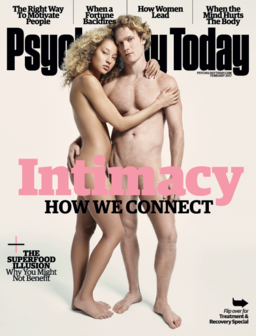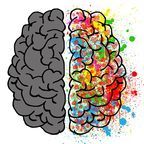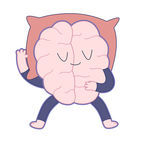When I saw this article in
Psychology Today, I chuckled. My now adult daughter, mom of three little ones, was her own brand of advocate in her then 4-year-old way. Her grandmother had been in a wheelchair most of her life, and Jenn was vigilant and knowledgeable about handicapped laws. She knew some of the logos, and symbols. Well, anyway, when we were out in public she was like a hawk and watched
any misuse of handicapped zones. (I mean
any!). I rapidly learned that if she saw someone who was vigorously walking into a store after having driven into a handicapped space, her brows furrowed and she pursed her lips. I was a coward at times, and just looked at something else, before she barraged me about the "now, the people who need to park there can't, Mom!"
She was a bright one and asked
endless questions
all day (one day her grandmother and I once counted about 230 questions from wakeup to bed...6a to 9p)
, so I knew it was going to be
that kind of morning. I had company coming and food shopping and cooking was my goal that day. On this day, she watched one man drive into a handicapped space, just like the example above. He jauntily and athletically sped into the store. After we were in the store for about ten minutes, she momentarily slipped away. As I looked over my shoulder, I saw her literally
stalking that man, two feet off his heels, as he put a few items in his cart. Her body language was focused: calm, strong. Before I could call out, she walked up to him, and tugged on his jacket sleeve . He was absorbed, and gave her a quick, "Hiya, honey", and went back to his shopping. "Dude, that was a mistake", I thought! I looked at her expression, and inside my head, I said, "Ah, it's on". She frowned again, knowing, even at four years old, that he had just completely blown her off. But, she persisted, and tugged on his sleeve again.
"Mithter, you are walking great now, but I thaw you park in a thpace out thide, that ith for people like my grandma! That ith not right! Not right! You are
not handicapped" As this 3-foot-plus kid looked up into the face of this 6-foot-plus man, delivering her verbal firestorm, she looked directly into his eyes, unwavering. By now, I was spell- bound. Was it the smell of blood in the water? I wondered if he would cross a kiddy line. I was ready! His expression softened, as his eye caught momma bear in the background, probably thinking I would have a soft motherly smile. Nope, I had completely elongated my spine, stood up very straight and stared. I had a real sense of non-betrayal of my little warrior in this event. He said to her: "Okay, honey, I'll remember that." She slightly tipped her head backwards, looking at him from narrowed eyes. She nodded her head as if she would believe him for now.
So I use that personal story to introduce this piece by Joshua Alvarez. Anyway, I LOVED the expression on that little girl in the picture!
Little Kids Are Already Judging You
It doesn't take us long to start evaluating others' (mis)deeds.
By Joshua Alvarez, published on January 3, 2017 - last reviewed on March 7, 2017
Yuliya Yesina/ShutterstockYoung children are surprisingly skilled at evaluating other people. Here's what they are picking up. Right and Wrong Behavior
Children as young as 3 can watch adults perform an arbitrary manual task and infer that it is being done the correct way, even without being told, according to a
report in
Psychological Science. A degree of moral judgment seems to appear early as well. "While it's debatable whether children understand what is right and wrong, they know that there is a right and wrong, and they're looking out for social cues," says coauthor Lucas Butler, a psychologist at the University of Maryland. Another
paper, in
Cognition, showed that, when given a choice, infants and children were more likely to take a single gift from a friendly character than two from an unfriendly character. "A 3-year-old who watches someone transgress against someone else is actually quite likely to intervene or protest," says University of Virginia psychologist Amrisha Vaish.
Authenticity
In addition to precociously absorbing rules, very young children also quickly become able to recognize disingenuousness.
Studies published in
Evolution and Human Behavior show that young children are capable of distinguishing genuine smiles from fake ones in photographs—and that they expect kinder behavior from more genuine-looking people.
Intentions and Desires
Four-year-olds judge a person's behavior not only by its outcome but also by what was
intended, a recent
study found. Yet children seem put off by inner moral conflict, at least early in their lives. Yale University psychologists Paul Bloom and Christina Starmans
found that, unlike adults, 3- to 8-year-olds expected better behavior from characters who acted morally without inner conflict than from those who had overcome immoral desires to do the right thing. Young children even favored someone who had committed an immoral
act with a clear
conscience over one who had struggled with it.







